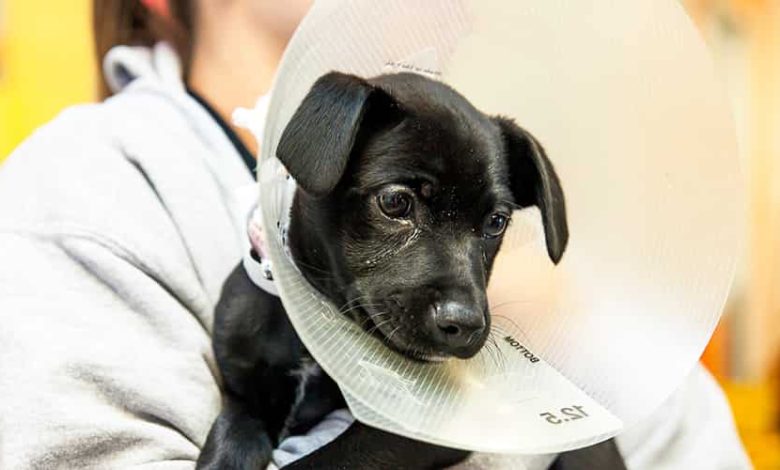Cost of Getting a Dog Neutered


Neutering is an essential procedure for responsible dog owners. It not only helps control the pet population but also offers numerous health benefits for dogs. However, before considering dog neutering, it’s important to understand the associated costs. This article aims to provide insights into the cost of getting a dog neutered, factors affecting the pricing, low-cost options, and ways to save money. By the end, you’ll have a comprehensive understanding of the expenses involved and the available resources to help you make an informed decision for your beloved furry friend.
Introduction
Neutering, also known as castration, is a surgical procedure performed to remove the reproductive organs of a male dog. This procedure renders the dog unable to reproduce, preventing unwanted litters and contributing to population control efforts. Beyond population control, neutering offers various health benefits for dogs, including a reduced risk of certain diseases and behavioral improvements.
The Process of Neutering
Neutering is typically performed by a licensed veterinarian. The procedure involves the removal of the testicles under general anesthesia. While the surgery itself is relatively straightforward, the use of anesthesia and the recovery process add to the overall cost. Anesthesia ensures that the dog remains pain-free and unconscious during the procedure, while the recovery period allows the dog to heal and regain strength.
Factors Affecting the Cost of Neutering
The cost of getting a dog neutered can vary based on several factors. One significant factor is the size and breed of the dog. Larger dogs generally require more anesthesia and may have additional surgical complexities, leading to higher costs. Geographic location also plays a role, as veterinary fees can vary from one area to another. Additionally, veterinary clinics may have different pricing structures based on their facilities, expertise, and reputation.
Average Cost of Neutering
The average cost of neutering a dog can range from $50 to $250 or more. The specific cost depends on the factors mentioned earlier. It’s important to note that this price usually includes the surgical procedure, anesthesia, and a follow-up appointment. However, additional costs may apply, such as pre-surgical bloodwork, pain medication, or an Elizabethan collar to prevent the dog from licking the surgical site.
Low-Cost Neutering Options
For dog owners with budget constraints, there are low-cost neutering options available. Non-profit organizations and animal shelters often provide subsidized or discounted neutering services. These organizations understand the importance of controlling the pet population and strive to make the procedure accessible to all dog owners. Spay/neuter clinics specifically dedicated to offering affordable sterilization services may also exist in your area.
The Benefits of Neutering a Dog
Apart from population control, dog neutering brings several benefits. Neutered dogs are less likely to exhibit certain behavioral issues, such as marking territory or aggressive tendencies. Moreover, neutering can significantly reduce the risk of certain diseases, including testicular cancer and prostate problems. It may also help diminish the desire to roam, preventing potential accidents or injuries.
Financial Assistance for Neutering a Dog
Recognizing the importance of neutering, various governmental programs and charitable organizations offer financial assistance to dog owners. These programs and subsidies aim to promote responsible pet ownership and ensure that cost is not a barrier to getting a dog neutered. Researching available assistance programs in your area can help you significantly reduce the financial burden.
See also: Pros and Cons of Neutering Border collie dog
How to Save Money on Neutering Costs
If you’re looking to save money on neutering costs, there are a few strategies to consider. Researching and comparing prices from different veterinary clinics can help you find the most affordable option without compromising quality. Additionally, some clinics or organizations offer discounted or promotional programs for specific periods, so keeping an eye out for such opportunities can lead to savings.
Conclusion
Neutering is a crucial step in responsible dog ownership, offering population control benefits and improving the overall health and behavior of dogs. While the cost of getting a dog neutered can vary depending on factors such as size, breed, and location, there are affordable options available. Non-profit organizations, spay/neuter clinics, and financial assistance programs can help reduce the financial burden. By understanding the costs involved and exploring the resources mentioned, dog owners can make an informed decision while prioritizing the well-being of their pets.
FAQs about the cost of getting a dog neutered
Is neutering painful for dogs?
Neutering is performed under general anesthesia, ensuring that the dog doesn’t experience any pain during the procedure. The recovery period may involve mild discomfort, but proper pain management measures are usually in place.
At what age should I get my dog neutered?
The optimal age for neutering varies depending on the breed and the veterinarian’s recommendations. Generally, it is recommended to neuter dogs between six and nine months of age.
Does neutering affect a dog’s behavior?
Neutering can have positive effects on a dog’s behavior, reducing the likelihood of certain behavioral issues such as aggression and marking territory. However, it may not completely eliminate all behavioral problems.
See also: How long does it take a male dog to recover from being neutered?
Can I still breed my dog after neutering?
No, neutering removes the reproductive organs, making the dog unable to reproduce. If you wish to breed your dog in the future, neutering is not the appropriate procedure.
Are there any risks associated with dog neutering?
Neutering is considered a routine surgical procedure with minimal risks. However, as with any surgery, there is always a small risk of complications, such as infection or adverse reactions to anesthesia. Your veterinarian can discuss these risks in more detail.




